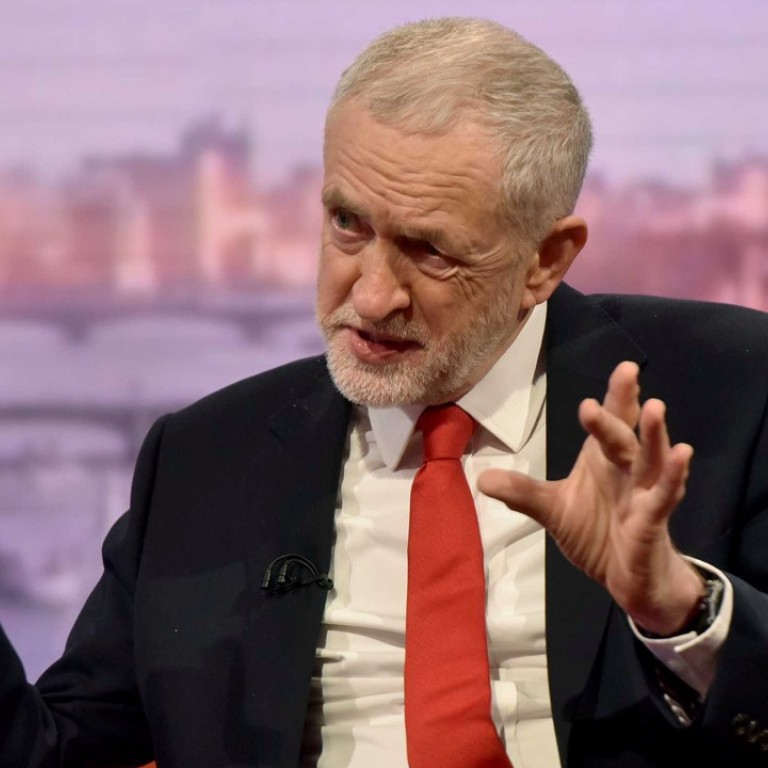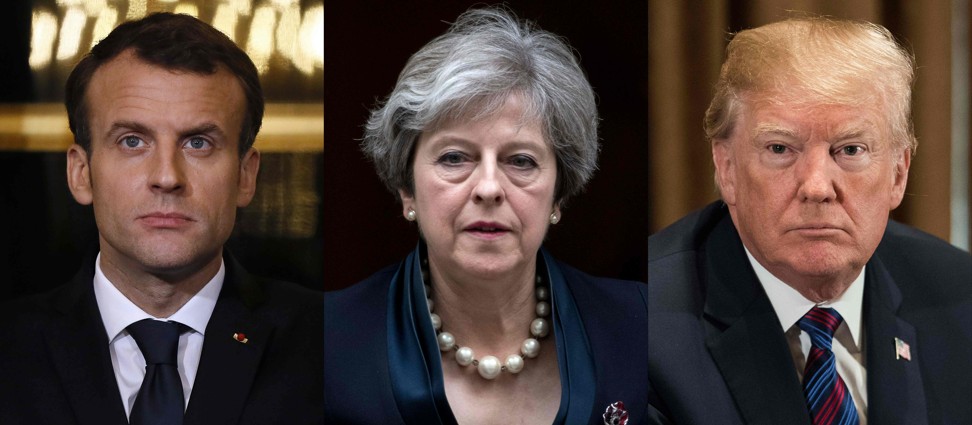
British opposition leader Jeremy Corbyn wants ‘war powers act’ to restrict military intervention after Syria strikes
Reports from Washington have suggested US President Trump considers himself ‘locked and loaded’ for future military action against the Assad regime
British opposition leader Jeremy Corbyn has questioned whether humanitarian intervention can ever be a legal justification for launching military action, and called for a “war powers act” that would force future UK governments to seek approval from parliament.
Speaking on BBC One’s Andrew Marr Show, the Labour leader repeated his assertion that the bombing raids launched by the UK early on Saturday morning, in cooperation with the US and France, may have been illegal.
If we want to get the moral high ground … then we need to abide by international law
He asked: “If we want to get the moral high ground, as a country with a history of international involvement, then we need to abide by international law, and I say to the foreign secretary, and I say to the prime minister, where is the legal basis for this?”
Legal advice published by the government on Saturday argued that in exceptional circumstances governments can take military action “in order to alleviate overwhelming humanitarian suffering”.
However, Corbyn, a former chair of the Stop the War Coalition and long-time opponent of western intervention, said: “The legal basis would have to be self-defence, or the authority of the UN Security Council. Humanitarian intervention is a legally debatable concept at the present time.
“I think parliament should have a say in this, and the prime minister could quite easily have done that. What we need in this country is something more robust, like a war powers act, so that governments do get held to account by parliament for what they do in our name.”
The foreign secretary, Boris Johnson, appearing on the programme immediately after Corbyn, stressed the limited nature of the raids, describing them as “timely, appropriate and commensurate”.
“There’s one overwhelming reason why this was the right thing to do, and that is to deter the use of chemical weapons, not just by the Assad regime but around the world,” he said, describing the action as a response not only to the Douma attack but repeated use of chemical weapons in Syria in the past few years. “Finally the world has said, enough is enough.”
Asked about the legal case for military action, Johnson said: “If it acts as a deterrent, which I believe it will, then it can alleviate further humanitarian suffering.”
He added: “It’s important that we understand the limits of what we are trying to do. This is not going to turn the tide of the conflict in Syria; one can hope it encourages the Russians to the negotiating table in Geneva, to get a political process properly going – but that is, as it were, an extra. The primary purpose is to say no to the use of barbaric chemical weapons.”

Reports from Washington have suggested US President Trump considers himself “locked and loaded” for future military action against the Assad regime but Johnson insisted there was “no proposal on the table” for renewed strikes. Asked how the UK would respond to fresh chemical weapons attacks, he said: “With allies, we would study what the options were.”
Johnson criticised Corbyn for saying he did not believe there was “incontrovertible evidence” that the Russian state was involved in the Salisbury poisoning, despite being privy to government intelligence about the case.
Discussing Russian suggestions this week that Britain could have been responsible for the attack itself, Johnson said: “I was struck that he failed to dismiss those suggestions with quite the vigour that he might have been expected to,” calling them “plainly preposterous”.
There’s one overwhelming reason why this was the right thing to do, and that is to deter the use of chemical weapons
A number of MPs, even those who backed UK involvement, were concerned that the government did not recall MPs from their Easter recess and hold a parliamentary vote before launching the raids.
Theresa May will give a statement to parliament on Monday, setting out her case for military action, allowing Corbyn and other MPs to express their concerns.
Corbyn said there should be a vote on Monday, setting out the next steps in the process, which should include enhancing the role of the Organisation for the Prevention of Chemical Weapons (OPCW), and giving it time to carry out its investigation.
Asked whether he would back military action if the OPCW found the Assad regime was responsible for the Douma chemical weapons attack, he said: “I would then say, confront Assad with that evidence; confront any other group that may be fingered because of that – and then say they must come in and destroy those weapons, as they did in 2013 and 2015.”
The Labour leader’s critics have questioned the plausibility of achieving a diplomatic solution, particularly one backed by the UN Security Council, in which Russia has repeatedly used its veto in defence of the Syrian regime.
But he called on the UK government to “work might and main to bring Russia and the US together on this so that we do get a political process in Syria, as well as the removal of chemical weapons”.
He added: “it can be done. It’s hard work and it takes patience – but surely that is better than the escalation of this conflict.”

